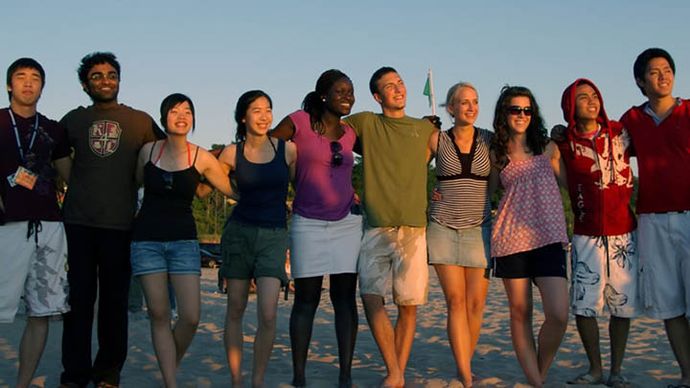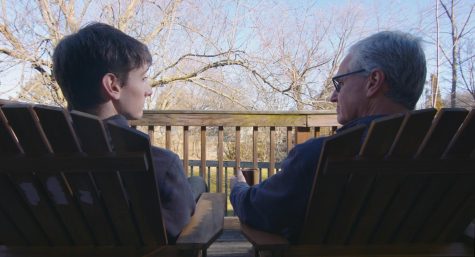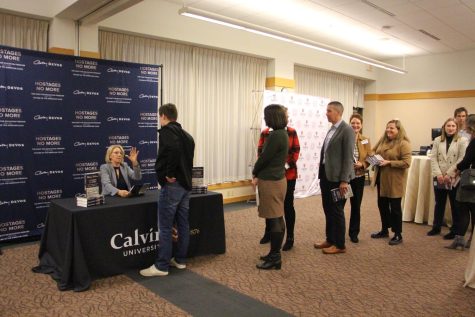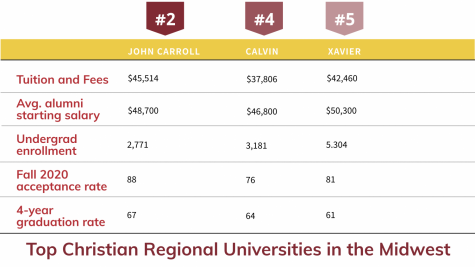International students gather to prepare for their futures
The international student development office (ISDO) has organized an informal weekly class for international students to discuss their options after graduation.
According to the admissions department, international students make up 12 percent of the student body this year. Bryce Carlton, Calvin’s new immigration coordinator, said this primarily includes students on an F1 visa.
An F1 visa allows students to live in the United States for a degree program (typically four years). In contrast, students coming for only one semester, like a study abroad program, need a J1 visa.
As Calvin’s immigration coordinator, Carlton is the official government liaison and he receives email updates from the U.S. Department of Homeland Security and the U.S. Department of State regarding any changes to immigration policy.
Students cannot work off-campus with a visa, so many international students apply for on-campus jobs. If they are in a degree program that requires an internship, they must apply to receive a Curricular Practical Training (CPT) extension from the government, which allows for work related to their major, such as an internship.
Carlton said student visas have a grace period from the date of graduation, expiring after 60 days. This year commencement is on May 19, so international students have until mid-July to find another opportunity or move home.
In order to stay in the United States for longer than 60 days after graduation, students either have to apply for an Optional Practical Training (OPT) authorization or have their immigration records transferred to another institution, such as a graduate school. Carlton said transferring ownership of the immigration files to another school is a very simple process.
The OPT extension is valid for one year, but graduates with a STEM degree on the approved list can apply for an extra 24-month extension for a total of three years. An OPT requires a full-time job, whether paid or unpaid, which the government considers anything more than 20 hours per week.
It can be difficult to find an employer willing to hire a student for only one year, but Carlton said the career services office does an excellent job connecting students to opportunities like jobs, internships and volunteer opportunities.
Esther Kwak, the program coordinator and student care counselor for the ISDO, said many students take advantage of the one-year OPT extension so they can take home both a degree and practical working experience.
The ISDO partners with any student with an international background, not only those who require a visa. Although international students are required to attend an informational workshop once a year, about three years ago Kwak noticed that juniors and seniors kept asking her specific questions about regulations and opportunities after graduation.
“I thought, ‘You know, since I’ve gone through it as an international student myself, I might be able to talk about my experience. … Since I have [a work visa] right now, I can talk about that,” she said.
Kwak invites all juniors and seniors with an international background to join the conversation. Last week, over fifty students gathered in the CFAC for an informal class and discussion. Carlton helps the students with technical information like forms and visas, so Kwak wanted to create a safe space for students to ask these questions.
“The majority of this work is Bryce’s work, it’s just that I am adding personal touch to it,” said Kwak. “I just tell them the stories behind, ‘Oh, I did this and I did that and it worked pretty well.’”
Kwak said her focus is not on new regulations that will eventually affect international students, but on their current options after graduation. She relies on Carlton to follow changes in immigration policy.
“It’s quite crazy right now. Every single day something’s new. I just think, whatever’s going to affect them now is what I want them to know.”
Isaac Chen, a junior from China, has attended the meetings this semester to learn all of his options.
“I think it’s important for me to know how long can I stay in the States. I don’t want it to be a surprise: ‘Oh, I have to be out of here tomorrow.’”
While the students discuss building a resume, tips for interviews and other services the career center has to offer , Kwak said they focus specifically on cultural differences and expectations. For example, when talking about networking, they discuss how to do small talk like an American.
“Usually we don’t talk about that with American friends because they don’t understand,” Chen said. “So it’s good to have that space [where] everyone shares that background. … We struggle together, we try to figure out how to do well in the struggle.”






